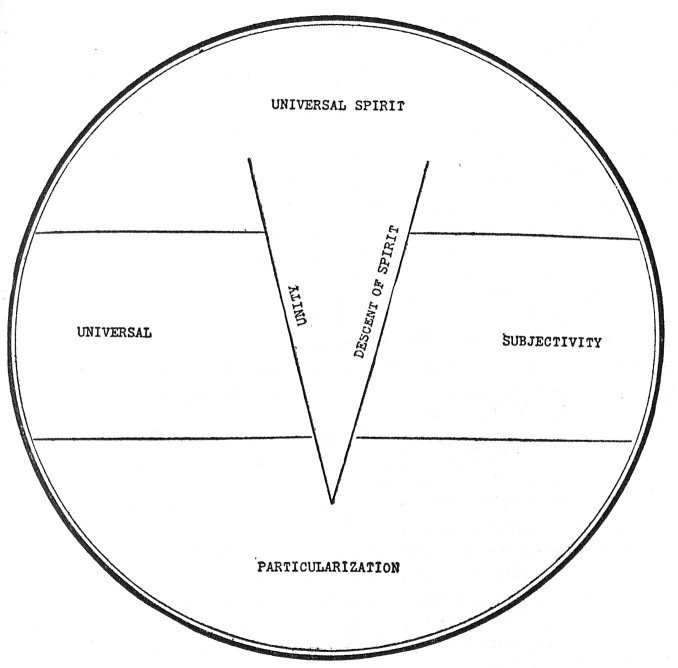
Holmes declares that intuition is in fact the presence of God within us. If we listen to our intuition, we are in fact listening to God, and following the path of all the spiritual greats that went before us. "Intuition is God in man" he says (p. 342), and he allys it with mystical consciousness.
This consciousness, because it comes from God, is always true and eternal, and cannot harm us or lead us astray. Because it is God, it can also never be contradictory; once we experience contradiction we are in the reralm of the psychic, which Holmes derides as facile, dangerous and even cowardly. The psychic stands at the door calling, he says, while the mystic walks right inside the heart of God.
Our spiritual duty, then, is to listen to our intuitive impulses, to believe them, act on them and declare them. Once we are living intutively, we are living in full acceptance of the Divine.




